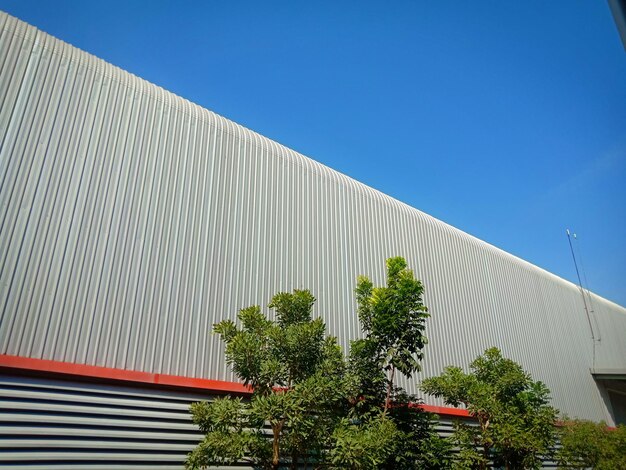How to Responsibly Dispose of Your Old Refrigerator
In our modern households, the trusty refrigerator stands as an essential appliance, quietly humming away and preserving our perishables. But what happens when it no longer serves its purpose? Improper disposal of old refrigerators can pose environmental hazards and legal issues. If you're wondering, “Where can I dump a refrigerator?” don't fret. This comprehensive guide unpacks all you need to know about the ethical and legal means of disposing of that old fridge.
🌍 Environmental Considerations
Why Refrigerators Need Special Handling
Refrigerators contain refrigerants and insulating foam that can contribute to ozone depletion and climate change when not handled correctly. These cooling chemicals, if released into the atmosphere, can cause significant harm to the environment.
Key Considerations:
- Refrigerants: Often contain chlorofluorocarbon (CFC) or hydrofluorocarbon (HFC), both potent greenhouse gases.
- Insulating Foam: Can also contain harmful chemicals that contribute to ozone depletion.
It's crucial to ensure that these substances are carefully extracted and safely disposed of by professionals.
Potential Environmental Consequences
Disposing of a refrigerator in a landfill can lead to:
- Release of Toxins: Harmful chemicals contribute to air and soil pollution.
- Space Consumption: Large appliances take up significant landfill space, burdening waste management systems.
By understanding the environmental impact, we empower ourselves to make more responsible choices when it comes to disposal.
🗑️ Legal and Safe Disposal Options
Contacting Your Local Waste Management Authority
Your first step should be to contact your local waste management services. These organizations are typically equipped with the information and resources to guide you on the correct disposal practices.
- Curbside Pickup Programs: Some municipalities offer special pickup services for large appliances, including refrigerators. This might involve scheduling a pickup in advance.
- Drop-off Centers: Many localities have designated drop-off centers for electronics and large appliances.
Pro Tip:
📝 Always check if your locality requires permits or fees for appliance disposal services.
Retailer Take-Back Programs
When buying a new refrigerator, some retailers offer to haul away your old appliance for a small fee or even for free.
- When to Ask: Inquire about take-back programs at the time of purchase.
- Cost Considerations: Evaluate whether this service is included in the delivery or if additional fees apply.
Professional Recycling Services
Professional recycling companies specialize in breaking down appliances safely and recycling the usable parts.
- Certified Companies: Look for services certified by relevant environmental agencies.
- Process: These companies ensure refrigerants and other materials are handled in compliance with state regulations.
Quick Tip:
🔍 Check online directories for accredited appliance recyclers near you for more options.
Manufacturer Recycling Programs
Some manufacturers offer recycling programs to take back their appliances. This ensures the appliance is dismantled and recycled responsibly.
- Contact the Manufacturer: Reach out to the manufacturer to learn about available programs.
- Eligibility: These programs are sometimes limited to specific models or brands.
🚚 Alternative Options for Your Old Fridge
Charitable Donations and Freecycling
If your refrigerator is still in working condition, consider donating it. Charities, non-profits, and community centers often accept appliances to help families in need.
- Organizations to Contact: Habitat for Humanity, local shelters, and thrift stores.
- Freecycle Networks: Online platforms where you can give away items to those who can use them, keeping them out of landfills.
Selling or Repurposing
Turning a profit from your old appliance is another viable option.
- Selling Online: Use platforms like Craigslist or Facebook Marketplace.
- Creative Repurposing: Old refrigerators can be turned into storage units, garden planters, or creative art installations.
Remember: Ensure any refrigerants have been properly removed before repurposing.
🛠️ Preparing for Disposal
Ensuring Safe Removal
Before you dispose of a refrigerator, take a few crucial steps to ensure it is ready for pickup or drop-off:
Defrost and Drain:
- Unplug and clean out the appliance to remove any ice and moisture.
Secure the Doors:
- Use tape or other means to securely fasten the doors shut to prevent accidents during transport.
Remove Shelves:
- This reduces weight and prevents them from shifting during the move.
📌 Summary of Safe Disposal Practices
Here’s a concise list of steps to responsibly dispose of a refrigerator, ensuring environmental safety and compliance with regulations:
- 🌍 Understand Environmental Impact: Know the hazards related to refrigerants and foam.
- 📞 Contact Local Services: Reach out to waste management for official disposal options.
- 🛒 Consider Retailer Take-Back: Use services offered by retailers when buying a new appliance.
- 🔄 Opt for Professional Recycling: Find certified recycling services for guaranteed safety.
- 🤝 Donate if Usable: Charitable donations can benefit others while reducing waste.
- 🔧 Follow Preparation Steps: Prepare your appliance for its journey during disposal.
By following these considered approaches, you not only contribute to protecting the environment but also abide by legal disposal regulations. This mindset promotes a sustainable future while meeting our everyday needs responsibly.
In your quest to find a home for your outdated appliance, remember: responsible disposal is within reach, empowering you to make a positive impact while adhering to legal and ethical standards.

